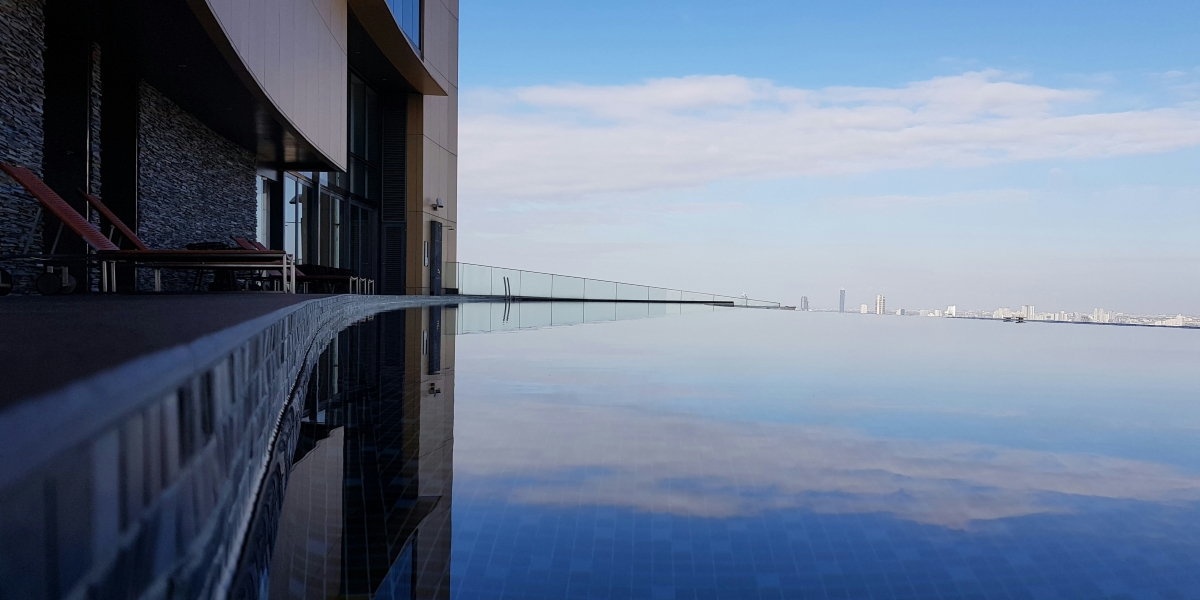Can clothing be good for your soul? Denise Reddy, founder of Harebell Shop, believes it can. She’s on a mission to introduce the world to a new generation of fashion brands that bring healing to people and to the environment.
“I founded Harebell Shop because I believe in good deeds that change the course of life, open the door to opportunities, and create a world where we can all live in harmony,” Denise says. Her philosophy, which is mirrored in the mission of the business that she has built, is to cause as little impact to the planet as possible.
Denise is a fifth generation Argentinian who was raised in Buenos Aires. She says that her story, and the story of Harebell, began with the holiday trips that her family would take to the mountains in Córdoba, Argentina. “We had no electricity there, only oil lamps; no hot water, only the river,” she explains. “When getting so close to nature at such an early age, you learn to love it so deeply.”
Denise is proud of her Hispanic heritage and the values it has instilled in her. “My inspiration comes from the women in my family who inspired me and marked my way,” she says. She’s honored to be able to promote and preserve the Latinx culture in the work that she is doing.
She’s also proud to see Hispanic designers making sustainability a priority in their work. She cites Patricia Kamajurá, a Brazilian designer from the Karajá people in the Amazon Rainforest. “I deeply admire her and support her fight to preserve the lungs of the world,” Denise says. “Many times, it is minorities and natives who protect our natural resources for future generations. I honor them and admire their traditions.”
Browse the brands that Denise has curated at www.harebellshop.com and you’ll find a unique collection, all of which take sustainability very seriously. Cúbreme uses “wildlife friendly sheep’s wool” from Argentina for fashions that are “a perfect balance between commitment and charm.” DACAL upcycles “out-of-style clothes,” transforming them into “stylish pieces” that are “timeless and genderless.” N°52 makes gorgeous shoes and handbags out of piñatex, a natural textile made from waste pineapple leaf fibre. Harebell calls it “leather that’s not leather.” The organic and sustainable fashion of Eilean Couture are described as good for the skin, planet, mind, and soul.
“I feel honored and humbled to be able to open the gates of the global market to those brands and their families,” Denise says. “Knowing the huge impact each sale has feels awesome.”
Denise envisions a future in which fashion cares for people and the environment, providing fairness for workers and dignifying work conditions. All of the brands showcased at Harebell work with their local communities and utilize sustainable processes. Most have a zero carbon footprint and all are dedicated to pursuing zero waste. Harebell is a “Certified B” Corporation, meaning it has embraced the highest standards of social and environmental accountability and care.
Denise believes that Harebell can help consumers to make better decisions about the businesses they support and, consequently, the future they are choosing. “I know first hand how hard it is to be an aware consumer; how much time it takes to read through and not fall into greenwashing practices,” she says. She believes that education is the key. She sees “fast fashion,” an often exploitative business model that mass-produces trendy styles at low costs, as a big problem in the industry. “If the consumers really knew the dangers of wearing certain types of dyes on your skin, or how toxic the creation of one pair of denim jeans is, I believe they would join us in holding companies accountable.”
Those visiting Harebell should not expect to find clothes that are cheaply made. Denise says sustainability comes at a cost that is justified. “There are so many aspects to why sustainable brands are more expensive, the main one being quality and fair wage,” she explains. “If you pay a fair wage to the person who picks the cotton from the fields, you can’t have a two dollar shirt. It just makes no sense. Those brands are cheaper because someone else is paying the price.”
Launching her business was not an easy task, especially with the challenges that Denise faced as an immigrant to the US. She was forced to engage with a new culture in a new language, where business practices and laws were different. But her journey gave her strength. “As an immigrant Latinx woman, you face a long process from entering the country to finally getting your Green Card,” Denise explains. “There is anxiety, wondering if you are missing a document. You feel like you can’t thrive or plan until you get the proper documentation.”
Today, Denise and Harebell have everything they need to succeed. “Our network is growing day by day and we are super grateful for all the support and consistent growth,” Denise says. “I know and trust we will heal the industry step by step.”
You can see Harebell fashions on the runway in Colombia in December 2021, Uruguay in February 2022, Los Angeles in June 2022, and Milan in September 2022. Stay tuned to their website, www.harebellshop.com, and Instagram, @harebell.shop, for exciting news about a sustainable home decor line launching in 2022.





